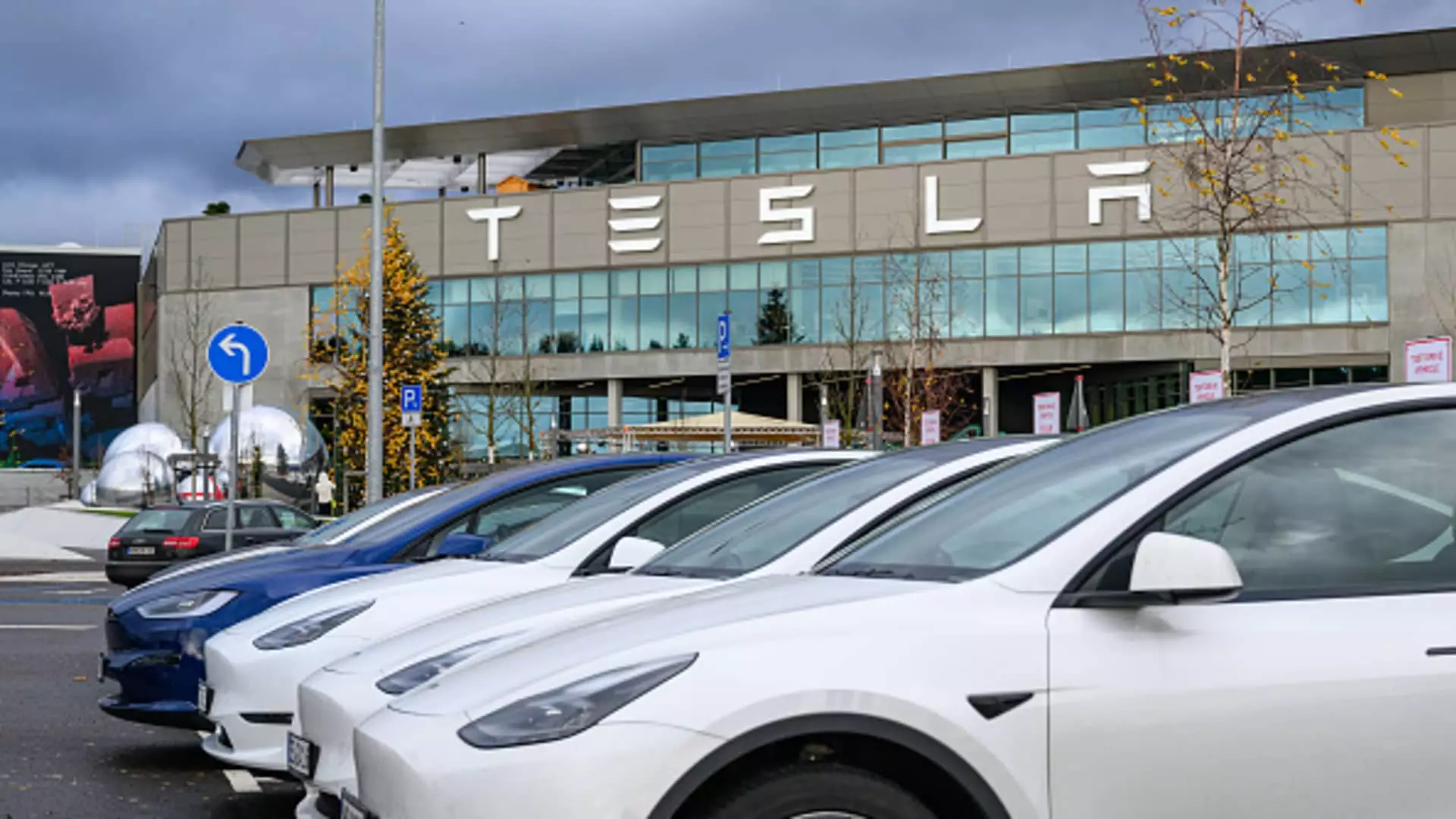Tesla’s stock has once again proven to be a reflection of the broader sentiment surrounding the electric vehicle (EV) industry and is subject to dramatic swings that can happen rapidly. Recently, the company’s shares were observed rising by 0.7% following a tumultuous start to the day, when they had been down as much as 6% in premarket trading. This turbulence highlights not just the volatility associated with Tesla but also the larger landscape of stock trading for high-profile companies, especially in a fluctuating economic environment.
Despite this momentary recovery, Tesla’s shares closed the week with a slight overall decline after experiencing an 8% drop earlier. Such a sharp decrease is notable, particularly when we consider it as the worst trading day for Tesla since prior to the election of Donald Trump. This incident serves as a reminder of how external political factors can directly and significantly influence investor sentiment towards companies, even those as innovative and forward-looking as Tesla.
The election of Donald Trump last November had a significant impact on Tesla’s stock. Following his victory, Tesla shares soared as investors anticipated potential benefits from Musk’s close relationship with the then-president-elect. There was a belief that Musk’s position and investment in the Trump campaign would position Tesla favorably in the context of federal regulations and policies. Reports indicated that Musk contributed a staggering $277 million to Trump’s election efforts, adding to the perception that Tesla would thrive in an administration supportive of business-friendly policies.
Furthermore, Musk’s appointment to lead the Department of Government Efficiency raised eyebrows as it coincided with ambitions for advancing self-driving technology. The rumored regulation framework for autonomous vehicles hinted at an advantageous environment for Tesla, a company heavily betting on its autonomous “robotaxi” technology. This aligns with Musk’s ambitious goal of launching fleets that could revolutionize urban transportation.
Despite these upward movements surrounding Tesla’s stock, significant challenges lurk on the horizon. Data released recently indicated that Tesla experienced a staggering 40.9% drop in car sales in November, a decline that notably outpaced the overall 9.5% dip in battery electric vehicle sales across Europe. Such figures can fundamentally alter perceptions of the company’s market position, compelling investors to reassess the sustainability of Tesla’s growth trajectory amid growing competition and market saturation.
Additionally, Tesla announced a recall of nearly 700,000 vehicles in the U.S. due to issues tied to the tire pressure monitoring system. While recalls are a common part of automotive industry dynamics, the ability of Tesla to implement over-the-air software fixes provides a slight cushion against potential long-term damage to its reputation. Still, the frequency of these recalls may raise eyebrows among investors who are accustomed to the company’s narrative of innovation and reliability.
Looking ahead, the road to full autonomy for Tesla remains fraught with complications. While Musk has made headlines with promises of an autonomous driving future, the company’s current offerings, such as the Autopilot and Full Self-Driving packages, still necessitate human oversight. As Tesla continues to work towards addressing these operational and regulatory hurdles, the expectations set by Musk could either solidify or undermine investor confidence.
The ambitious metaphorical ‘Cybercab’ announced at the firm’s “We Robot” event encapsulates Tesla’s dominant narrative of innovation; however, reality challenges this perception. Until tangible solutions to operational autonomy are realized, skepticism may loom large in the minds of investors.
Tesla navigates a complex landscape marked by volatility, external influences, and pressing challenges. While its connection to significant political figures like Trump has historically led to surges in stock performance, the reality of declining sales and operational challenges poses risks that cannot be overlooked. Investors hoping to capitalize on Tesla’s innovative promise must tread carefully, balancing hope for its transformative technologies against the backdrop of fluctuating market dynamics and political landscapes.

